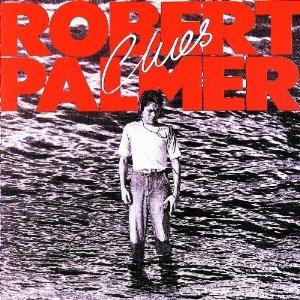 It’s been a bit of a movingtheriver obsession over the past few weeks as summer finally kicks in and the album format makes a seasonal comeback.
It’s been a bit of a movingtheriver obsession over the past few weeks as summer finally kicks in and the album format makes a seasonal comeback.
You’re enjoying the music, hailing a ‘classic’ record and then…damn. It’s the track you always skip, the runt of the collection, the song that tarnishes a perfectly good album.
Maybe the band was ‘letting their hair down’ after a few pints in the pub down the road. Maybe it was the drummer/producer/bass player’s vanity track, the one they pushed hard for. Maybe it’s the overplayed hit. Maybe the album sequencing isn’t quite right. To be honest, often it’s just something irrational that you can’t quite put your finger on.
For whatever reason, here are movingtheriver’s almost perfect 1980s ‘pop’ albums, and the tracks that just don’t quite sit right:
Scritti Politti: Provision (skipped track: ‘Boom! There She Was’)
Prefab Sprout: Steve McQueen (skipped track: ‘Horsin’ Around’)
Prefab Sprout: Protest Songs (skipped track: ‘Tiffany’s’)
Prefab Sprout: From Langley Park To Memphis (skipped track: ‘I Remember That’)
Talking Heads: Remain In Light (skipped track: ‘The Overload’)
Phil Collins: Face Value (skipped track: ‘I’m Not Moving’)
Propaganda: A Secret Wish (skipped track: ‘Jewel’)
Wendy & Lisa: Fruit At The Bottom (skipped track: ‘Tears Of Joy’)
China Crisis: Diary Of A Hollow Horse (skipped track: ‘Age Old Need’)
Danny Wilson: Meet Danny Wilson (skipped track: ‘Nothing Ever Goes To Plan’)
Danny Wilson: Bebop Moptop (skipped track: ‘NYC Shanty’)
Frankie Goes To Hollywood: Liverpool (skipped track: ‘Watching The Wildlife’)
David Bowie: Let’s Dance (skipped track: ‘Cat People’)
Kate Bush: Hounds Of Love (skipped track: ‘Running Up That Hill’)
The Police: Synchronicity (skipped track: ‘Every Breath You Take’, and sometimes ‘Mother’ too…)
Joni Mitchell: Wild Things Run Fast (skipped track: ‘Solid Love’)
Roxy Music: Avalon (skipped track: ‘Take A Chance With Me’, but I love the intro…)
Hue and Cry: Remote (skipped track: the title track)
Prince: Batman (skipped track: ‘Arms Of Orion’)
Swing Out Sister: It’s Better To Travel (skipped track: ‘Breakout’)
Thomas Dolby: The Golden Age Of Wireless (skipped track: ‘Windpower’)
(In the name of balance, I’ve listed my all-thriller/no-filler 1980s albums here. )
Do chime in with the tracks that, for you, muck up otherwise excellent 1980s albums.




 Noel Coward famously noted the strange potency of ‘cheap’ music.
Noel Coward famously noted the strange potency of ‘cheap’ music.  The critical consensus: 1986 was the worst music year of the decade, perhaps of any decade. But is that true?
The critical consensus: 1986 was the worst music year of the decade, perhaps of any decade. But is that true?  The 1980s produced some fine lyricists. You couldn’t move for decent wordsmithery. But interesting lyrics came from the damndest places.
The 1980s produced some fine lyricists. You couldn’t move for decent wordsmithery. But interesting lyrics came from the damndest places. 
 Reading obituaries of director Jonathan Demme, who has died from cancer aged 73, it struck me how many memorable scenes his films spawned.
Reading obituaries of director Jonathan Demme, who has died from cancer aged 73, it struck me how many memorable scenes his films spawned. 